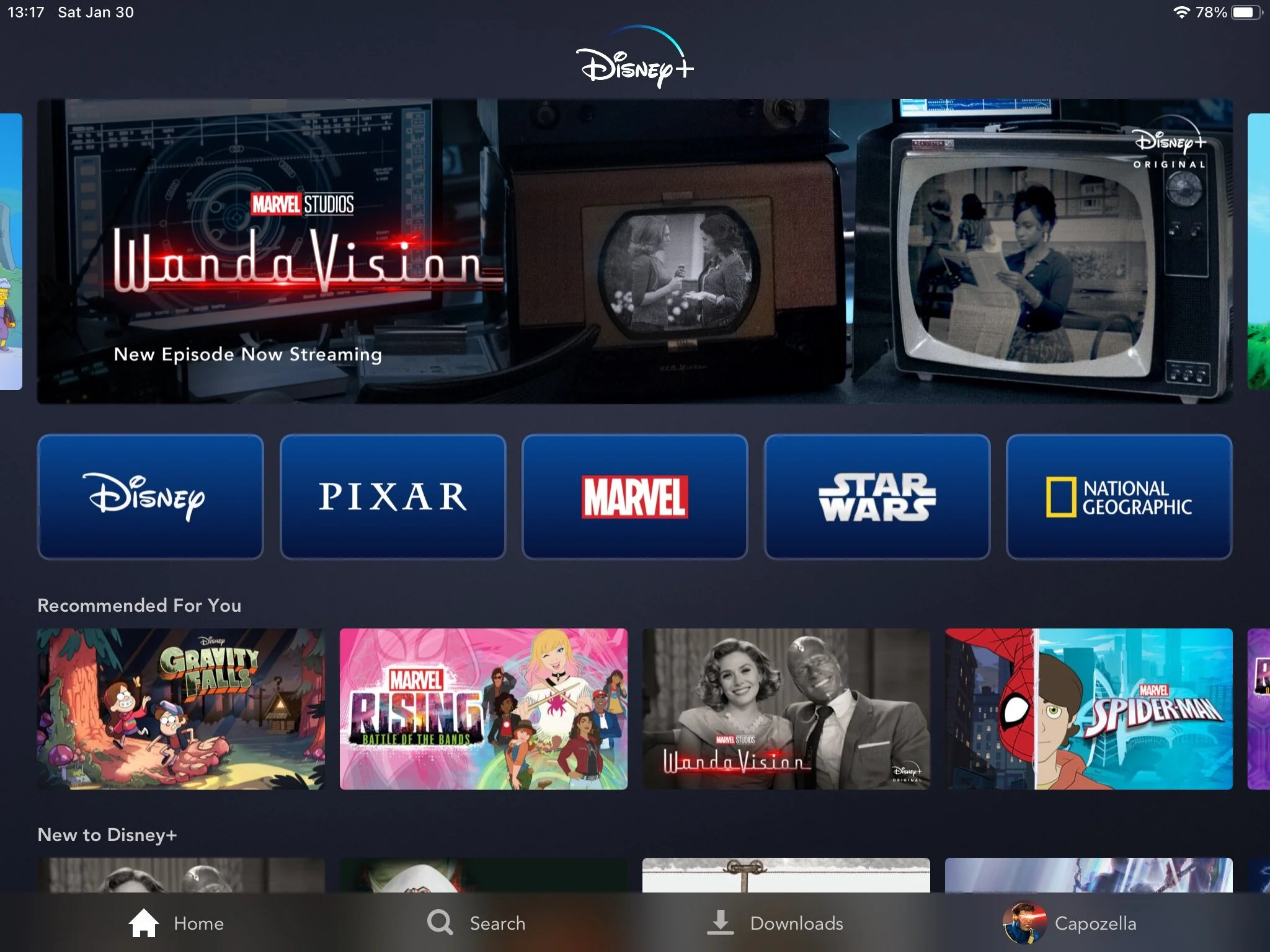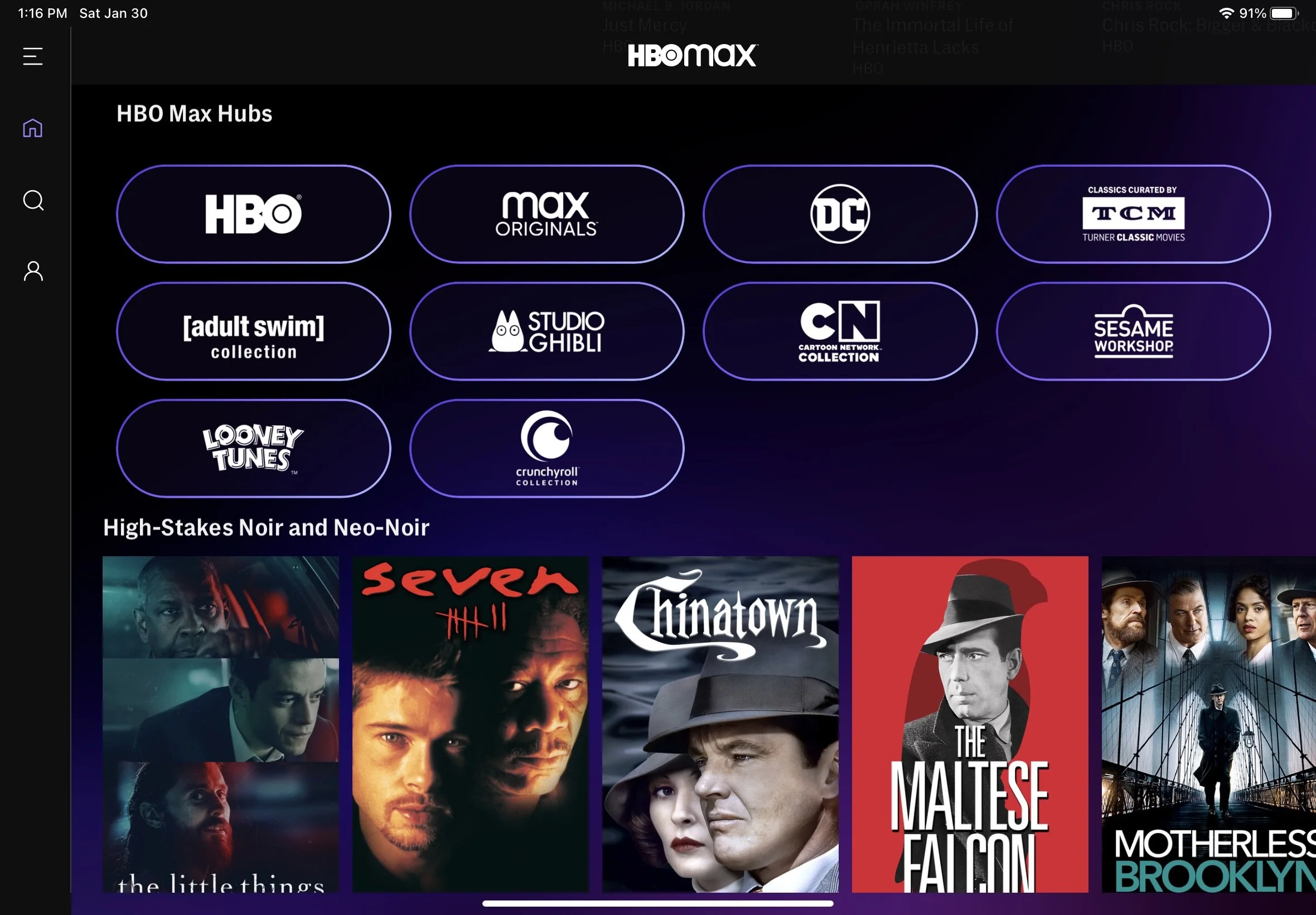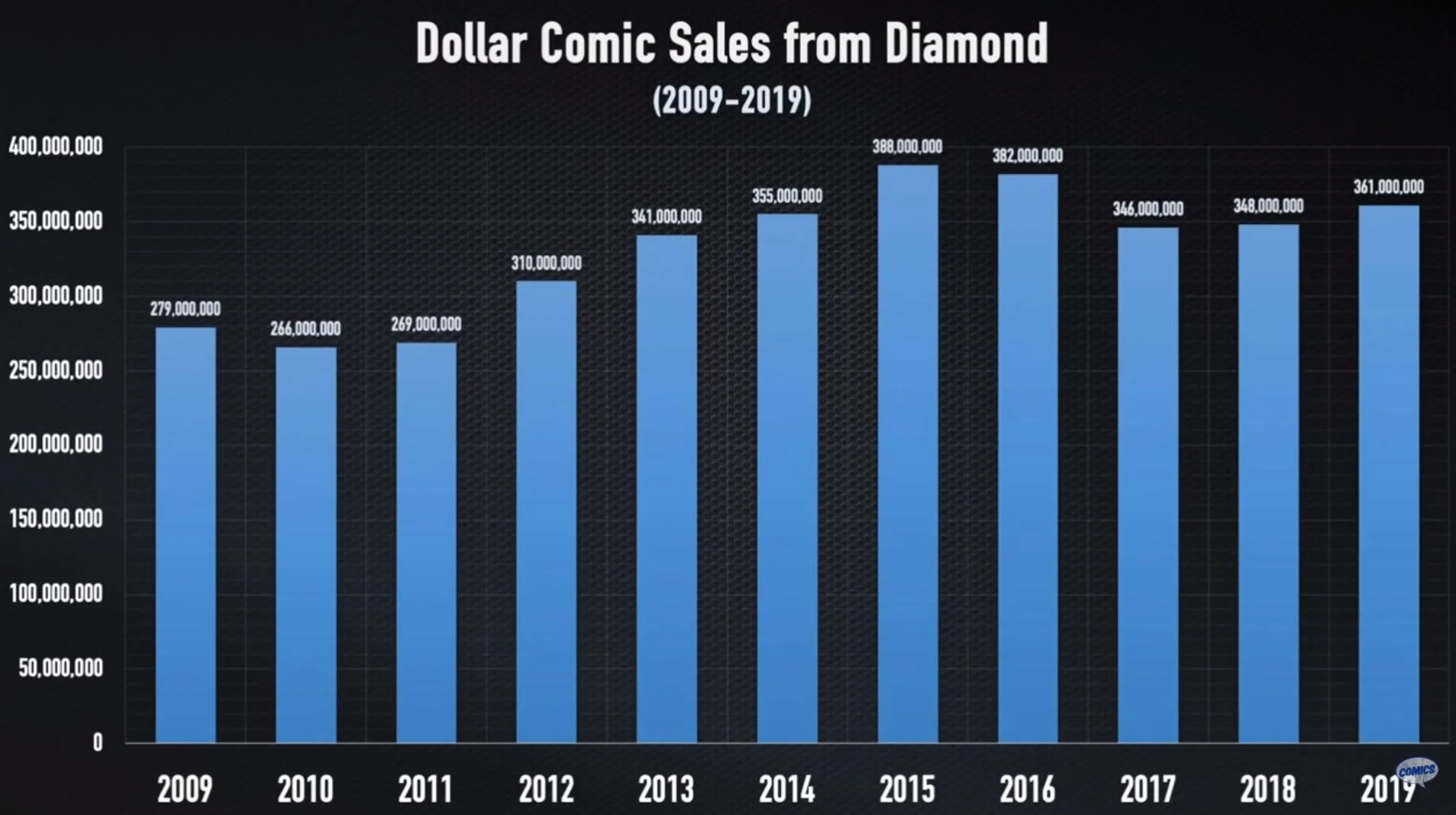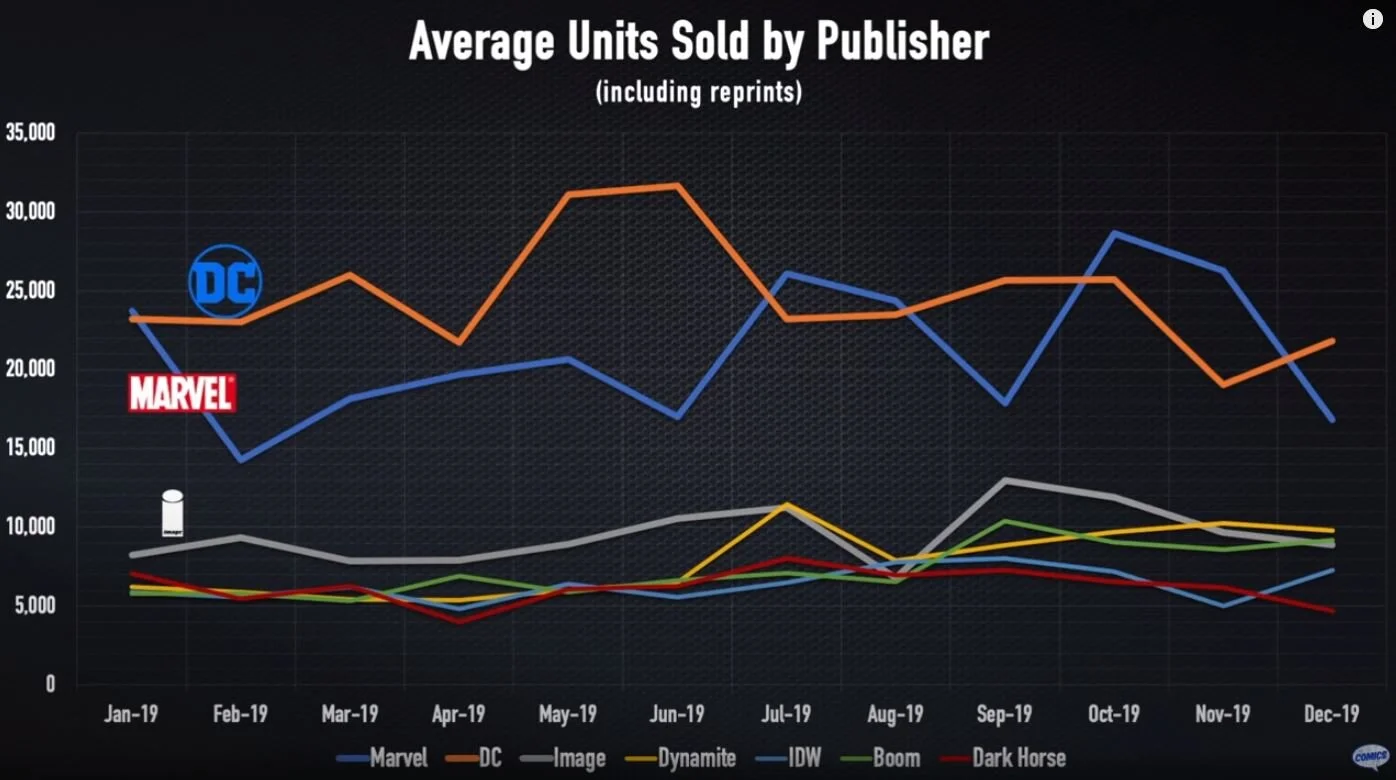"Where Good Ideas Go To Die: The IP Farm"
The entertainment industry is at a tipping point. It's gearing up to evolve to an extent we haven't seen since the advent of home movie or digital. I don't know that it's appropriate to call the 2020s the "Golden Age" or "Renaissance" or "Revolution" of streaming services, but we definitely are entering a fully-competitive and saturated, if not over-saturated, streaming market. This is a streaming market that now hinges on original content, the progression of which is sped up in part due to the Coronavirus Pandemic (2020-???).
Where does that original content come from? Earlier Netflix hits like Stranger Things are wholly new properties, this one in particular jumping on the bandwagon of 80s Nostalgia and the D&D resurgence. Disney+'s flagship Original is The Mandalorian, a spin-off from a Star Wars character premiering in Empire Strikes Back (1980). And Amazon Prime finally found some success via a variety of avenues, adapting Tom Clancy's character Jack Ryan, Philip K Dick's The Man in the High Castle, as well as new stories like The Marvelous Ms. Maisel. This is just to address the top 3 streaming services and original scripted content.
These original programming blocks have expanded dramatically in the years since and show no sign of slowing. Some of the larger entertainment news items from the last few months are Disney's Investor Day, where they took the opportunity to announce an extensive slate of upcoming Marvel and Star Wars adaptations for Disney+ and for theatres. AT&T/WarnerMedia have made similar recent announcements between the two DC FanDome dates and throughout Fall 2020: DC Comics adaptations out the wazoo. Netflix is also cashing in on comic book properties, with The Umbrella Academy, Locke & Key, and The Old Guard. And Amazon likewise with their hit The Boys.
How did we get to this point? The classic sentiment, "Hollywood is just remakes and adaptations now" seems to ring more and more true, regardless of whether most viewers are familiar with, for example, classic comic book storylines.
Where do we go from here?
The answer: IP Farming.
What is IP Farming? I think the term is less-than-technical, and I've only heard it from a ClownfishTV video. But it's a useful description for a practice that's becoming more and more prevalent: collecting property rights with the intent to capitalize via multi-media (i.e., cross-platform adaptations, such as comic book to movie). This is different from various licensing practices and conglomeration that you might see in the music or film industries, or on a smaller scale, how comic book publishers like IDW and Boom! function with foundations in licensed properties. IP Farming also includes the secondary aspect of farming: cultivation; generating new properties is just as important as collecting old ones.
The business model and various approaches are relatively straightforward. Take a look over at the Disney+ or HBOMax apps. They are laid out as hubs of various different channels and production companies. WarnerMedia and Disney have spent quite a bit of time and money over the last decade acquiring and consolidating in order to accomplish this.
That is one model: to straight-up buy collections of intellectual properties and bring them under a single umbrella.
The second model is to generate content. Netflix has been pumping out new shows nigh-prolifically over the last several years, and the clip from South Park ("Netflix. You're greenlit!") seems all-too-true when it comes to the flood of press releases for new show announcements or just the act of opening up the Netflix homepage each week. There are various financial aspects to this strategy, from creator pay to debt and investment, but I won't go into detail here.
However, even cheaper and more prolific that the "Netflix Model" is to farm user-generated content. YouTube seems the obvious candidate for this strategy and has tried but generally failed with original programming via YouTube Red/YouTube Premium. Instead, the shining examples are in comic books and written media: Webtoon and Wattpad being the examples I'll focus on here. (Note: Wattpad was recently--Jan 2021--acquired by Webtoon parent company Naver.) Each of these websites functions as a platform for submitted stories with some extent of a 'partner'/'featured' program. Each site also has programs aimed at helping provide creators with networking and optioning opportunities by connecting them with production companies. The base setup is standard and simple: the creator owns and holds liability for the property, and the website holds a nonexclusive publishing license (further reading re: Webtoon and Wattpad). Each website is free and subsists on ad revenue. After some digging, it's not immediately clear to me what each company's role in production, rights ownership, and revenue is when it comes to optioning and adapting properties published on each site, or, for example, what a "partnership" with a production company technically entails.
I'll close out this introduction with the obvious, dissenting question: Why not "just make comic books"? In my opinion this is a valid question. Movies are not the end-all-be-all of entertainment, and comics serve as a better medium for many stories. But...the money is in Hollywood. The whole of the US comic book market amounts to over a billion in sales yearly. That's "one" billion dollars. And that's including manga and YA graphic novels in addition to traditional direct market comics. Avengers: Endgame grossed $858.3 million domestically and $2.798 billion worldwide. Those are Hollywood numbers.
I want to outline some examples that give an overview of where the industry is at right now with regards to IP farming.
WarnerMedia is making a big effort to leverage DC Comics as both source material and integrated advertising for their movie and TV productions. Synergy among divisions, really. With the recent Future State line and upcoming Infinite Frontier reboot titles, this becomes immediately clear. At first glance, here's a list of new titles directly linked to recent or upcoming screen productions: Shazam!, Black Adam, Suicide Squad (ft. Peacemaker), Wonder Woman (Yara Flor), Justice League Dark, Swamp Thing, and Green Lantern (ft. John Stewart).
It's also worth noting that WarnerMedia has a big advantage owning the rights to these properties in-house. Disney even more so, with a near-spotless track record of keeping production in-house, as well. The comics line, as noted before, is a relatively small source of revenue for the parent compant. Oftentimes, it's not even profitable: CCO Jim Lee commented in August 2020 that 25% of the comics line is losing money or just breaking even. But that's insignificant if even a moderately-successful TV or film adaptation will easily make up for that.
There's a unique recent example to keep your eye on with regards to the American comic book industry: NBCUniversal's Universal Content Productions (UCP). UCP recently launched a comic book division, headed by comics veteran Grant Morrison, and is starting to publish comics as an imprint of Boom!. And they cite in a press release specifically that the intent is to produce mirror comic book and TV productions for each of these properties. These comics exist nearly exclusively to provide TV IP.
The next major players, though, are the sources of user-generated content: Webtoon and Wattpad. The exact business model is unclear at this point with regards to optioning IPs, but it is suggested that Webtoon/Wattpad, in their Webtoon Studios/Wattpad Studios services agree with creators to a percentage of the profit in exchange for production company partnerships (I will amend these comments as appropriate as I learn more).
Webtoon has found its niche primarily with publishing content that leads to successful adaptation as K-Drama series. And more recently Webtoon has partnered with Crunchyroll to produce original anime based on some of their top series: Tower of God, Noblesse, and The God of High School.
Wattpad has found a market with some of their featured stories transitioning both into traditional publishing and film adaptations. The most prominent examples are probably Anna Todd's After series, yielding successful novels and a movie option, and Beth Reekles' The Kissing Booth movie adaptation, which temporarily topped viewership charts on Netflix.
So...What should we expect going forward? "A whole lot of comic book adaptations" is the simple answer. For both new and for old properties. Comic books are cheap to produce, effective exposure to a test market, and they provide a literal storyboard from which to produce a screen adaptation.
With regards to comics, the trend of "Netflix Pitch" comics is not going away anytime soon. And I expect more imprints in the vein of Boom!'s UCP or Mark Millar's Millarworld (under Netflix) publishing through Image.
Additionally, I do expect a lot more consolidation of companies in the near future. It's been cited that Dark Horse was about to be acquired, but the Pandemic threw a wrench in those plans, at least temporarily. I am interested in seeing what deals in that vein might be made in the near future.
What does that entail, a publisher being acquired? I think, a lot less bargaining power for creators. Todd McFarlane makes a shrewd point in his Cartoonist Kayfabe interview explaining that if you're the creator of the 100th-bestselling comic book, you've got approximately the fifth most-desirably property for studios. The rest of the top 100 comics are Marvel and DC, and Disney and WarnerMedia already monopolize those production rights. So the only available properties are: #100-200. Find yourself creating a book now under a parent production company, however, and you've lost the ability to shop around.
This marketability has provided a lot of great opportunities for creators, Todd McFarlane himself not the least of which. Image Comics, publishing creator-owned properties, seems like the ideal breeding ground for the next host of TV and Movie adaptations. This list so far includes Kirkman's The Walking Dead and Invincible, Rucka's The Old Guard, Venditti's Surrogate, Remender's Deadly Class, and and pre-Netflix Mark Millar books like Kick-Ass, to name a few.
The current state of Image books continues this trend. Big-time creators like Scott Snyder and Charles Soule with Undiscovered Country and Donny Cates with Crossover look to be making their moves to capitalize with a "Netflix Pitch" comic, Snyder/Soule already successfully optioning movie rights. And smaller publishers like Oni Press with O'Malley's Scott Pilgrim and Vault Comics with Visaggio's Vagrant Queen also provide opportunities for properties to grow cross-platform.
BUT. Image Comics nor any other direct market publisher of creator-owned comic books, so far as I am aware or can find cited, has any partnership with production companies or any direct involvement with optioning and producing adaptations based on their publications. In addition, the costs of creating and publishing print comics introduce a barrier to entry, and these book are often being marketed to a very small audience.
The prospects of Webtoon and Wattpad and similar platforms look increasingly bright. User-generated, ad-sponsored stories with an increasingly expansive and increasingly active pool of users. Each company has successfully built and is expanding partnerships with a diverse lineup of production companies, Wattpad even maintaining their own AI software to best identify and match stories to companies.
IP Farming: it's laying the backdrop for the entertainment industry's next transformation. If you're a creator, be smart. There are opportunities to be gained and to be lost. And when it comes to optioning your IP, you do have options.






